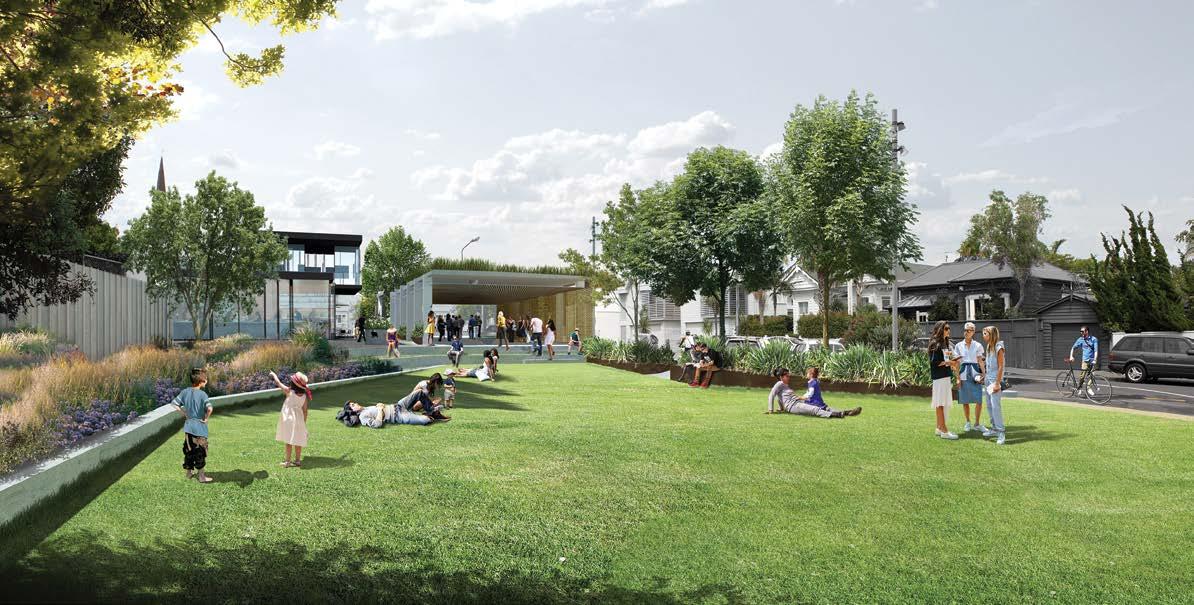
3 minute read
PIPPA COOM: COUNCILLOR FOR WAITEMATA & GULF
PIPPA COOM: THERE’S NO GOING BACK TO ‘BUSINESS AS USUAL’
As we put behind a turbulent year and look ahead to what 2021 will bring, the push for a return to “business as usual” has to be avoided.
The very wellbeing of our environment, communities and economy depends on a recovery from the pandemic through a “build it back better” lens. This has never been more apparent for Auckland Council as Councillors and the Mayor worked through the details of the next 10-year budget. Local authorities are required to consult every three years on a decade of activities and long-term outcomes. Due to the continuing and significant financial impacts from Covid-19 the next 10-year budget (or long term plan) going out for public feedback on 22 February will be a “Recovery Budget”.
Like many businesses and organisations, Council anticipates a sharp drop in revenue to have an ongoing impact for the next three years, with an estimated shortfall of $540m from 2021-2024. This is on top of the $450m loss of revenue addressed through the Emergency Budget consulted on last year. In particular, this includes revenue reductions for Ports of Auckland, public transport, regulatory revenue, revenue from conventions and stadiums, and dividends from Auckland International Airport.
As we saw through the Covid-19 response, Council has an important role to play across a wide range of services, community facilities as well as the region’s economic recovery. I want Council to continue investing strongly in infrastructure, which creates jobs as well as valuable long-term assets for future generations, rather than adopt an austerity budget. To achieve this I supported going out for consultation on the proposed average 3.5 per cent general rates increase over the course of the 10-year budget, with a one-off increase of 5 per cent in the next financial year to help address the impacts of the pandemic. Under-investment by former councils, as a means of keeping rates artificially low, is one of the reasons there’s still sewage going into the Waitemata.
Even with the proposed investment there are significant savings, including locking in $90m of the savings realised this current financial year for the next three years. The sale of surplus property to invest in the critical infrastructure Auckland needs, and temporarily increasing borrowing for the first three years of the 10-year budget is also on the table.
An important consideration for my support for the Recovery Budget is the inclusion of significantly increased climate action funding, building on what was secured last year, to reduce greenhouse gas emissions and respond to the impacts of climate change. The plan is to work with the Government on policy changes and funding, including achieving 50 per cent of our bus fleet becoming electric or hydrogen buses by 2030. From 1 July 2021, no diesel buses will be added to our existing fleet. If we can secure funding to phase out all diesel buses by 2030 that would bring with it an estimated $166 million reduction in social costs, from pollution and poor health. A climate lens must be applied to all our funding decisions.
The Recovery Budget will allow Council to invest as much as $550m more into transport projects in the first three years and provide additional infrastructure needed for housing development. It also provides for $145m of funding for Watercare, investment of $54m into stormwater to improve water quality in the Manukau Harbour and Eastern Isthmus and $65m into upgrading some of our aging community facilities over the next three years.
While we’re facing incredible budget constraints, the challenges have never been so great for our infrastructure, our water, our environment and our communities. To make the best decisions, we need to know what you think about these challenges we’re facing, locally and as a region, and the level of rates we pay. Public feedback will be taken into consideration to assist Councillors and the Mayor prioritise and focus on how best to rebuild through the Recovery Budget following the impacts of Covid-19.
Consultation is open from 22 February until 22 March. (PIPPA COOM) PN










